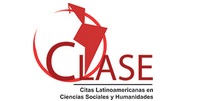Agotamiento, interferencia emocional, dominio del entorno, autoeficacia y compromiso de profesores durante la pandemia COVID-19
DOI:
https://doi.org/10.32870/dse.v0i28.1355Resumo
Los profesores han sido unos de los profesionales más afectados durante la pandemia, pues la contingencia les ha desafiado a realizar modificaciones importantes en su quehacer profesional. Este estudio pretende analizar la asociación entre variables de salud mental, psicoeducativas y sociodemográficas en profesores de nivel escolar durante la pandemia de Covid-19. Para esto se utilizó un enfoque cuantitativo con diseño descriptivo-correlacional-causal de corte transversal. Los resultados evidencian que los profesores presentaron niveles altos de agotamiento emocional, la mitad de las veces muestran dificultades para disminuir la interferencia emocional, una vez a la semana reportaron dificultades para dominar el entorno y se creen algo capaces para promover la autoevaluación del estudio; sin embargo, están frecuentemente comprometidos; y este compromiso está asociado con el agotamiento emocional, dominio del entorno, autoeficacia, ser mujer, y tipo de jornada laboral parcial, contribuyendo con 26% de la variabilidad compartida.
Downloads
Referências
Abarca, C.; L. Ramírez; T. Caycho (2020). Inteligencia emocional y burnout en docentes de educación inicial de Ayacucho. Apuntes Universitarios, 10(2), 30-45. https://doi.org/10.17162/au.v10i2.438
Alava, A. (2020). Bienestar psicológico y asertividad de los docentes de la unidad educativa santa dorotea de ciudad de quito, en el año 2019. Facultad de Ciencias Humanas y de la Salud, 21(1), 1-9. http://mpoc.org.my/malaysian-palm-oil-industry/
Alves, R.; T. Lopes; J. Precioso (2020). Teachers’ Well-Being in Times of Covid-19 Pandemic: Factors that Explain Professional Well-Being. International Journal of Educational Research and Innovation, 15, 203-217. https://doi.org/10.46661/ijeri.5120
Asa, F.; V. Lasebikan (2016). Mental Health of Teachers: Teachers’ Stress, Anxiety and Depression among Secondary Schools in Nigeria. International Neuropsychiatric Disease Journal, 7(4), 1-10. https://doi.org/10.9734/INDJ/2016/27039
Ato, M., J. López; A. Benavente (2013). A Classification System for Research Designs in Psychology. Anales de Psicología, 29(3), 1038-1059. https://doi.org/10.6018/analesps.29.3.178511
Bandura, A.; A. O’Leary; C. Taylor; J. Gauthier; D. Gossard (1987). Perceived Self-Efficacy and Pain Control: Opioid and Nonopioid Mechanisms. Journal of Personality and Social Psychology, 53(3), 563-571. https://doi.org/10.1037/0022-3514.53.3.563
Baloran, E.; J. Hernan (2020). Crisis Self-Efficacy and Work Commitment of Education Workers among Public Schools during COVID-19 Pandemic. Preprints, 1, 1-14. https://doi.org/10.20944/preprints202007.0599
Bozkurt, A.; R. Sharma (2020). Emergency Remote Teaching in a time of global crisis due to CoronaVirus Pandemic. Asian Journal of Distance Education, 15(1). https://doi.org/10.5281/zenodo.3778083
Bryson, C.; L. Hand (2007). The role of Engagement in Inspiring Teaching and Learning. Innovations in Education and Teaching International, 44(4), 349-62. https://doi.org/10.1080/14703290701602748
Breusch, T.; A. Pagan (1979). A Simple Test for Heteroscedasticity and Random Coefficient Variation. Econometrica 47, 1287-1294
Cáceres-Muñoz, J.; A. Jiménez-Hernández; M. Martín-Sánchez (2020). Cierre de escuelas y desigualdad socioeducativa en tiempos del Covid-19. Una investigación exploratoria en clave internacional. Revista Internacional de Educación para la Justicia Social, 9(3), 199-221. https://doi.org/10.15366/riejs2020.9.3.011
Caicedo. E.; M. Zalazar-Jaime (2018). Entrevistas cognitivas: Revisión, directrices de uso y aplicación en investigaciones psicológicas. Avaliação Psicológica, 17(3), 362-370. http://dx.doi.org/10.15689/ap.2018.1703.14883.09
Carlotto, M.; S. Câmara (2015). Prevalence and Risk Factors of Common Mental Disorders among Teachers. Revista de Psicología del Trabajo y de las Organizaciones, 31, 201-206. 10.1016/j.rpto.2015.04.003
Celio-Pillaca, J. (2021). Burnout y satisfacción con la vida en docentes que realizan clases virtuales en un contexto de pandemia por covid-19. Puriq, 3(1), 185-212. https://doi.org/10.37073/puriq.3.1.142
Cohen, S.; P. Gianaros; S. Manuck (2016). A Stage Model of Stress and Disease. Perspectives on Psychological Science, 11(4), 456-463. https://doi.org/10.1177/1745691616646305
Collie, R. (2021). COVID-19 and Teachers’ Somatic Burden, Stress, and Emotional Exhaustion: Examining the Role of Principal Leadership and Workplace Buoyancy. AERA Open, 7. https://doi.org/10.1177/233285842098618
Dallal, G.; L. Wilkinson (1986): An Analytic Approximation to the Distribution of Lilliefors' Test for Normality. The American Statistician, 40, 294-296
Espinosa-Izquierdo, J.; J. Granados-Romero (2021). El síndrome burnout y su efecto en el desempeño docente en tiempo de pandemia. Polo del Conocimiento, 6(3), 670-679. https://doi.org/10.23857/pc.v6i3.2395
Faskhodi, A.; M. Siyyari (2018). Dimensions of Work Engagement and Teacher Burnout: A Study of Relations among Iranian EFL Teachers. Australian Journal of Teacher Education, 43(1), 78-93. https://doi.org/10.14221/ajte.2018v43n1.5
Fox, J.; S. Weisberg (2018). An R Companion to Applied Regression, Third Edition, Sage.
Galvis-López, G.; A. Vásquez; Y. Caviativa; P. Ospina; V. Chaves; L. Carreño; V. Vera (2021). Tensiones y realidades de los docentes universitarios frente a la pandemia Covid-19. European Journal of Health Research, 7(1), 1-13. https://doi.org/10.32457/ejhr.v7i1.1396
García-Fernández, L.; V. Romero-Ferreiro; S. Padilla; P. López-Roldán; M. Monzó-García; R. Rodríguez-Jiménez (2021). Gender Differences in Emotional Response to the COVID-19 Outbreak in Spain. Brain and Behavior, 11(1), 1-5. https://doi.org/10.1002/brb3.1934
Grajales, T. (2001). Estudio de la validez factorial del Maslach Burnout Inventory versión Española en una población de profesionales mexicanos. Memorias del CIE, 2(1), 63-82.
Guzmán-González, M.; C. Trabucco; M. Urzúa; L. Garrido; J. Leiva (2014). Validez y confiabilidad de la versión adaptada al español de la escala de dificultades de regulación emocional (DERS-E) en población chilena. Terapia Psicológica, 32(1), 19-29. https://doi.org/10.4067/S0718-48082014000100002
Hamama, L.; T. Ronen; K. Shachar; M. Rosenbaum (2013). Links between Stress, Positive and Negative Affect, and Life Satisfaction among Teachers in Special Education Schools. Journal of Happiness Studies, 14, 731-751. https://doi.org/10.1007/s10902-012-9352-4
Hederich-Martínez, C. (2016). Validación del cuestionario Maslach Burnout Inventory-Student Survey (MBI-SS) en contexto académico colombiano. CES Psicología, 9(1), 1-15. https://doi.org/10.21615/cesp.9.1.1
Hernández, F. (2018). Autoeficacia docente y desempeño docente, ¿una relación entre variables? Innovación Educativa, 18(78), 171-192. http://www.scielo.org.mx/pdf/ie/v18n78/1665-2673-ie-18-78-171.pdf
Hultell, D.; J. Gustavsson (2011). Factors Affecting Burnout and Work Engagement in Teachers when Entering Employment. Work, 40(1), 85-98. https://doi.org/10.3233/WOR-2011-1209
Karahan, E.; G. Roehrig (2016). Use of Web 2.0 Technologies to Enhance Learning Experiences in Alternative School Settings. International Journal of Education in Mathematics, Science and Technology, 4(4), 272. https://doi.org/10.18404/ijemst.32930
Klassen, R.; S. Yerdelen; T. Durksen (2013). Measuring Teacher Engagement: Development of the Engaged Teachers Scale (ETS). Frontline Learning Research, 1(2), 33-52. https://doi.org/10.14786/flr.v1i2.44
Kraft, M.; N. Simon; M. Lyon (2020). Sustaining a Sense of Success: The Importance of Teacher Working Conditions during the COVID-19 Pandemic. Annenberg Institute for School Reform at Brown University, 20(1), 1-56. https://doi.org/10.26300/35nj-v890
Kulikowski, K.; S. Przytu?a; L. Su?kowski (2021). The Motivation of Academics in Remote Teaching during the Covid-19 Pandemic in Polish Universities-Opening the Debate on a New Equilibrium in E-learning. Sustainability, 13(5), 2752. https://doi.org/10.3390/su13052752
Lie, A.; S. Tamah; I. Gozali; K. Triwidayati; T. Utami; F. Jemadi (2020). Secondary School Language Teachers’ Online Learning Engagement During the COVID-19 Pandemic in Indonesia. Journal of Information Technology Education. 19, 803-832. https://doi.org/10.28945/4626
López-Angulo, Y.; J. Mella-Norambuena; F. Sáez-Delgado; R. Álvarez-Jara (2020). La Inteligencia emocional en apoderados chilenos confinados por la COVID-19. CienciAmérica, 9(2), 285. https://doi.org/10.33210/ca.v9i2.320
Maheswara, S. (2017). Mental Health Status of High School Teachers. The International Journal of Indian Psychology, 4(3), 54-61. https://doi.org/10.25215/0403.046
Manzano, A. (2020). Síndrome de burnout en docentes de una Unidad Educativa, Ecuador. Horizontes Revista de Investigación en Ciencias de la Educación, 4(16), 499-511. https://doi.org/10.33996/revistahorizontes.v4i16.132
Marx, I.; G. Domes; C. Havenstein; C. Berger; L. Schulze; S. Herpertz (2011). Enhanced Emotional Interference on Working Memory Performance in Adults with ADHD. The World Journal of Biological Psychiatry, 12, 70-75. https://doi.org/10.3109/15622975.2011.599213
Maslach, C.; S. Jackson (1981). The Measurement of Experienced Burnout. Journal of Organizational Behavior, 2(2), 99-113. https://doi.org/10.1002/job.4030020205
Maslach, C.; S. Jackson; M. Leiter (1986). The Maslach Burnout Inventory Manual. https://bit.ly/3djunNA
Mella-Morambuena, J.; Y. López-Angulo; F. Sáez-Delgado; M. del Valle (2020). Estrategias de afrontamiento en apoderados durante el confinamiento por la COVID-19. CienciAmérica, 9(2), 322. https://doi.org/10.33210/ca.v9i2.324
Menghi, M. (2018). La salud mental de los docentes: factores de protección: Teachers’ Mental Health: Protective Factors. Revista ConCiencia EPG, 3(1), 13-30. https://doi.org/10.32654/CONCIENCIAEPG.3-1.1
Meo, A.; V. Dabenigno (2021). Teletrabajo docente durante el confinamiento por COVID-19 en Argentina. Condiciones materiales y perspectivas sobre la carga de trabajo, la responsabilidad social y la toma de decisiones. Revista de Sociología de la Educación-RASE, 14(1), 103-127. http://dx.doi.org/10.7203/RASE.14.1.18221
Millán, A.; N. Calvanese; M. D’Aubeterre (2017). Condiciones de trabajo, estrés laboral, dependencia universitaria y bienestar psicológico en docentes universitarios. Revista de Docencia Universitaria, 15(1), 195. https://doi.org/10.4995/redu.2017.6009
MINEDUC (2020). Ministerio de Educación de Chile. Educación en Pandemia: Principales medidas del Ministerio de Educación en 2020. https://bit.ly/3uiKvq0
MINTRAB (2020) ¿En qué consiste la jornada parcial de trabajo y cuáles son sus características? https://www.dt.gob.cl/portal/1628/w3-article-60089.html
Oñate, M.; R. Resett; M. Menghi; M. Iglesia (2016). Burnout y autoconcepto en psicólogos clínicos. Revista de Psicoterapia, 27(103), 215-229. https://doi.org/10.33898/rdp.v27i103.53
OMS (2020). Coronavirus Disease 2019 Situation Update. World Health Organization, 14(6), 1-16. https://www.who.int/emergencies/diseases/novel-coronavirus-2019/situation-reports
Portillo, S.; L. Castellanos; Ó. Reynoso; O. Gabotto (2020). Enseñanza remota de emergencia ante la pandemia Covid-19 en Educación Media Superior y Educación Superior. Propósitos y Representaciones, 8(3). http://dx.doi.org/1020511/pyr2020.v8nSPE3.589
Pressley, T. (2021). Factors Contributing to Teacher Burnout During COVID-19. Educational Researcher, 20(10), 1-3. http://dx.doi.org/10.3102/0013189X211004138
Ramos, V.; H. García; C. Olea; K. Lobos; S. Fabiola (2020). Percepción docente al trabajo pedagógico durante COVID-19. CienciAmérica, 9(2), 1-20. http://dx.doi.org/10.33210/ca.v9i2.325
Rey, L.; N. Extremera; M. Peña (2012). Burnout and Work Engagement in Teachers: Are Sex and Level Taught Important? Ansiedad y Estrés, 18(3), 119-129. https://bit.ly/3mcA1oW
Ruiz, D.; M. Moreno; C. Beltrán; C. Perales (2014). Burnout y work engagement en docentes universitarios de Zacatecas. Ciencia y Trabajo, 16(50) 16-120. https://scielo.conicyt.cl/pdf/cyt/v16n50/art10.pdf
Ryff, C. (1989). Happiness Is Everything, or Is It? Explorations on the Meaning of Psychological Well-Being. Journal of Personality and Social Psychology, 57(6), 1069-1081. https://doi.org/10.1037/0022-3514.57.6.1069
Ryff, C. (1995). Psychological Well-Being in Adult Life. Current Directions in Psychological Science, 4(4), 99-104. https://doi.org/10.1111/1467-8721.ep10772395
Sáez-Delgado, F.; M. Cofré; C. Estrada; M. Fornerod; M. García; E. Muñoz; G. Segovia (2020). Escala de autoeficacia docente para la promoción de la autorregulación del aprendizaje. CienciAmérica, 9(3), 64. https://doi.org/10.33210/ca.v9i3.332
Sáez-Delgado, F.; C. Olea-González; J. Mella-Norambuena; Y. López-Angulo; H. García-Vásquez; R. Cobo-Rendón; F. López (2020). Caracterización psicosocial y salud mental en familias de escolares chilenos durante el aislamiento físico por la Covid-19. Revista Internacional de Educacion para La Justicia Social, 9(3), 281-300. https://doi.org/10.15366/RIEJS2020.9.3.015
Sáez-Delgado, F.; C. Bustos; M. Pérez; J. Mella; K. Lobos; A. Díaz (2018). Disposición al estudio, autoeficacia y atribuciones causales en estudiantes universitarios chilenos. Journal of Educational Psychology-Propositos y Representaciones, 6(1), 223-245. http://dx.doi.org/10.20511/pyr2018.v6n1.179
Sahito, Z.; P. Vaisanen (2020). A Literature Review on Teachers’ Job Satisfaction in Developing Countries: Recommendations and Solutions for the Enhancement of the Job. Review of Education, 8(1), 3-34. https://doi.org/10.1002/rev3.3159
Santamaría, M.; N. Mondragon; N. Santxo; N. Ozamiz-Etxebarria (2021). Teacher Stress, Anxiety and Depression at the Beginning of the Academic Year during the COVID-19 Pandemic. Global Mental Health, 8(e14), 1-24. https://doi.org/10.1017/gmh.2021.14
Santander, S.; M. Gaeta; V. Martínez-Otero (2020). Impacto de la regulación emocional en el aula: un estudio con profesores españoles. Revista Interuniversitaria de Formación Del Profesorado, 95(1), 225-246. https://doi.org/10.47553/rifop.v34i2.77695
Schonfeld, I.; R. Bianchi (2016). Burnout and Depression: Two Entities or One. Journal of Clinical Psychology, 72, 22-37. https://doi.org/10.1002/jclp.22229
Sharay, T. (2020). Relationship of Teachers’ Emotional Burnout with Life-Purpose Orientations and Copying Strategies. Parpha Proceedings, 6, 2275-2285. https://doi.org/10.3897/ap.2.e2275
Syrek, C.; J. Kühnel; T. Vahle-Hinz; J. de Bloom (2021). Being an Accountant, Cook, Entertainer and Teacher-all at the Same Time: Changes in Employees' Work and Work?Related Well?Being during the coronavirus (COVID-19) Pandemic. International Journal of Psychology, 1, 1-13. https://doi.org/10.1002/ijop.12761
Talidong, K. (2020). Implementation of Emergency Remote Teaching (ERT) among Philippine Teachers in Xi’an, China. Asian Journal of Distance Education, 15(1), 196-201. https://doi.org/10.5281/zenodo.388182
Tyra, A.; S. Griffin; T. Fergus; A. Ginty (2021). Individual Differences in Emotion Regulation Prospectively Predict Early Covid-19 Related Acute Stress. Journal of Anxiety Disorders, 81(1), 1-10. https://doi.org/10.1016/j.janxdis.2021.102411
Viner, R.; S. Russell; H. Croker; J. Packer; J. Ward; C. Stansfield; O. Mytton; C. Bonell; R. Booy (2020). School Closure and Management Practices during Coronavirus Outbreaks including COVID-19: A Rapid Systematic Review. The Lancet Child and Adolescent Health, 4(5), 397-404. https://doi.org/10.1016/S2352-4642(20)30095-X
Vytasek, J.; A. Patzak; P. Winne (2020) Análisis para la participación de los estudiantes. Paradigmas de aprendizaje automático. Springer, Cham, 23-48.
Wong, J.; J. Yang (2020). Seeing is Believing: Examining Self-Efficacy and Trait Hope as Moderators of Youths’ Positive Risk-Taking Intention. Journal of Risk Research, 1, 1-14. https://doi.org/10.1080/13669877.2020.1750463
Yildirim, M.; A. Güler (2020). COVID-19 Severity, Self-Efficacy, Knowledge, Preventive Behaviors, and Mental Health in Turkey. Death Studies, 1-8. https://doi.org/10.1080/07481187.2020.1793434
Yurtçu, M.; H. Orhan-Karsak (2021). The Effects of Pre-Service Teachers’ Extracurricular Study Habits and Emotion Regulation on Lifelong Learning Tendencies in Covid-19 Process: The Effects of Pre-Service Teachers’ Extracurricular Study Habits and Emotion Regulation. International Journal of Curriculum and Instruction, 13(1), 334-342
Downloads
Publicado
Edição
Seção
Licença
Copyright (c) 2023 Universidad de Guadalajara

Este trabalho está licenciado sob uma licença Creative Commons Attribution-NonCommercial 4.0 International License.
Esta obra está bajo una licencia internacional Creative Commons Atribución-NoComercial 4.0.
Una vez que los manuscritos son aceptados por los evaluadores para ser publicados, los autores deberán de suscribir una carta de cesión de derechos en favor de la Universidad de Guadalajara para la edición, publicación y difusión de su obra. Ya que sea notificada la publicación de su manuscrito, el editor de la revista le enviará un correo electrónico con el formato de la carta de cesión de derechos.















